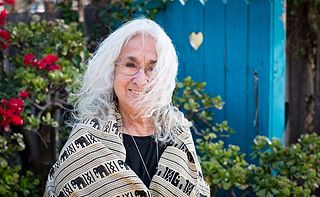A Quote by J. William Fulbright
There are two Americas. One is the America of Lincoln and Adlai Stevenson; the other is the America of Teddy Roosevelt and the modern superpatriots. One is generous and humane, the other narrowly egotistical; one is self-critical, the other self-righteous; one is sensible, the other romantic; one is good-humored, the other solemn; one is inquiring, the other pontificating; one is moderate, the other filled with passionate intensity; one is judicious and the other arrogant in the use of great power.
Related Quotes
Two persons who have chosen each other out of all the species with a design to be each other's mutual comfort and entertainment have, in that action, bound themselves to be good-humored, affable, discreet, forgiving, patient, and joyful, with respect to each other's frailties and perfections, to the end of their lives.
There's nothing wrong with being proud of America, believing that America can do great things. America can do great things, it has done great things. I think we have to have the self-awareness to recognize that the world is a very, very big place, that we could be a force for good things in the world, but we have to have the humility to recognize that sometimes even when we think we're acting from the best of motives our own idealism can be infected by self-interest. Other people in other countries can see it sometimes better than we can.
Have you ever considered, beloved other, how invisible we are to each other? We look at each other without seeing. We listen to each other and hear only a voice inside out self. The words of others are mistakes of our hearing, shipwrecks of our understanding. How confidently we believe OUR meanings of other people's words.
One cannot really know an other without intimacy. Detached, objective observations alone leave a surface upon which it is too easy to project one's own image or fantasies. In intimacy, one respectfully interacts with the other, invites the penetration of the other, enters into a common effort, and then the strange and distinct contours of self and other become more apparent.
I don't think Israelis are less critical of corruption than people in Italy, France or America. Israel is special in a different way. There is a daytime Israel and a nighttime Israel. The first is self-confident, pushy and passionate, like other Mediterranean lands. It is hedonistic, materialistic and almost arrogant. During the nighttime, people are terrified, people are filled with existential dreads. These fears aren't baseless.
If I love the other person, I feel one with him or her, but with him as he is, not as I need him to be as an object for my use. Respect thus implies the absence of exploitation: it allows the other to be, to change and to develop 'in his own ways.' This requires a commitment to know the other as a separate being, and not merely as a reflection of my own ego. According to Velleman this loving willingness and ability to see the other as they really are is foregrounded in our willingness to risk self-exposure.
I love festivals because they seem like more of an artsy, supportive attitude - which benefits a more theatrical performer sometimes with having theater and other non-club venues, as well as the audience being filled with other artists. It's nice to be with other comics, as usually at other road gigs, I'm solo for the most part.
I fear the popular notion of success stands in direct opposition in all points to the real and wholesome success. One adores public opinion, the other, private opinion; one, fame, the other, desert; one, feats, the other, humility; one, lucre, the other, love; one, monopoly, and the other, hospitality of mind.
First become a Zorba, a flower of this earth, and earn the capacity through it to become a Buddha - the flower of the other world. The other world is not away from this world; the other world is not against this world: the other world is hidden in this. This is only a manifestataion of the other, and the other is the unmanifest part of this.

































